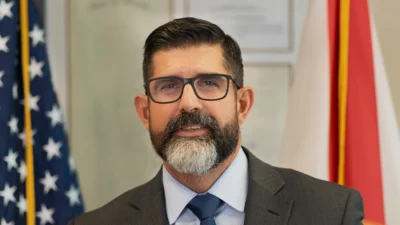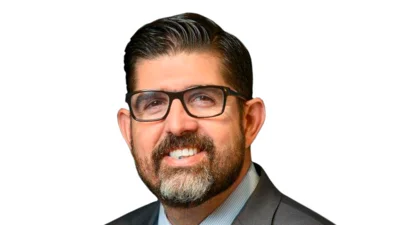UF College of Veterinary recently issued the following announcement.
The University of Florida College of Veterinary Medicine has received a two-year grant from the U.S. Department of Agriculture to start a mentoring program for high school students from underrepresented populations, aimed at recruiting those students into the veterinary profession.
Dr. Michael Bowie, left, with girls at Girl's Place in Gainesville, during the "How We Role" program the UF College of Veterinary Medicine initiated in 2019. The new Vet Start program targets an older age group and will begin this fall.
The new Vet Start Mentoring Program initiative was funded for $86,342. Initially intended to begin July 1, 2020, the start date was postponed until 2021 due to the coronavirus pandemic. Through the program, youth-specific mentorship training will be provided to UF veterinary faculty and veterinary students. They will serve as mentors to high school students from North Central Florida rural high schools, beginning with two schools in Alachua County.
“Veterinary medical colleges struggle to recruit an applicant pool that is diverse and representative of the U.S. population,” said the grant’s principal investigator, Michael Bowie, Ph.D., a clinical assistant professor of parasitology and director of the college’s community engagement and diversity outreach office. “Outreach programs target students at a collegiate level, but very few programs involve the active recruitment of students in high school — a key time period for career planning and decision-making.”
To be successful, any program must provide a pathway for success that goes beyond a simple visit or outreach to a local school, he said.
“Thus, the Vet Start Mentoring Program is a sustainable program for recruitment and ongoing mentorship of high school students from underrepresented populations within our local community,” Bowie said, adding that mentors will include one faculty member and one veterinary student for each selected participant — a framework that will afford an opportunity for multiple levels of mentorship and guidance for the pre-veterinary student.
“Participating students will shadow D.V.M. faculty and will participate in veterinary and animal-related interactive experiences that use many of the science and math skills obtained in middle and high school,” Bowie said.
To ensure that faculty are able to properly relate to the participating students, they will be trained to become mentors using culturally relevant strategies, Bowie said. Student mentors will also be trained and matched with participating underrepresented minority students and will assist mentees with academic and social skills.
Bowie and two other investigators leading the project have completed the “Train-the-Trainer” workshop for Everyday Mentoring offered by the Mentoring Partnership of Southwestern Pennsylvania. The program, which is supported by the National Mentoring Resource Center, provides guidance in structuring the youth mentorship program based on the stated objectives of the project.
“The juxtaposition of the UF College of Veterinary Medicine with a rural area of North Central Florida is a perfect setting for a program that encourages underrepresented youth to become engaged in a career that emphasizes the application of STEM skills in pursuit of food safety, public health and production medicine,” Bowie said.
Ten faculty mentors and 10 D.V.M. students will be selected the first year on the basis of their motivation, enthusiasm and willingness to dedicate their time to Vet Start, as well as on an essay describing their interest in the program, qualifications, expectations and the importance of diversity in the veterinary profession. Mentors will visit the participating schools and meet with their mentee regularly. Faculty members will provide shadowing opportunities throughout the year. Veterinary student mentors will help students with understanding the veterinary profession and communicate with high school students throughout the school year to ensure that they are supported academically and emotionally.
Among the educational exercises the students will complete is a two-day module on antibiotic resistance, a growing concern in human and animal health. This module will allow students to understand how antibiotic resistance develops and the consequences to the agricultural industry, according to the college’s grant application.
The high schoolers’ experience will culminate with a “MicroVet School,” where participating students will use the lessons that they learned while attending two days of veterinary school at UF. A final ceremony celebrating their successful completion of the program will take place with members of their family, school and community. Students also will be evaluated throughout the program to determine what changes need to be made to ensure their success in the program.
Original source can be found here.



 Alerts Sign-up
Alerts Sign-up